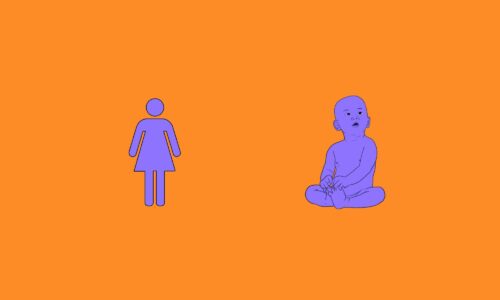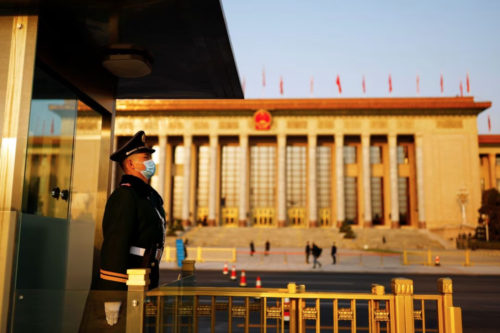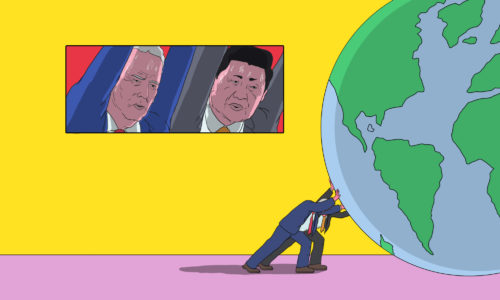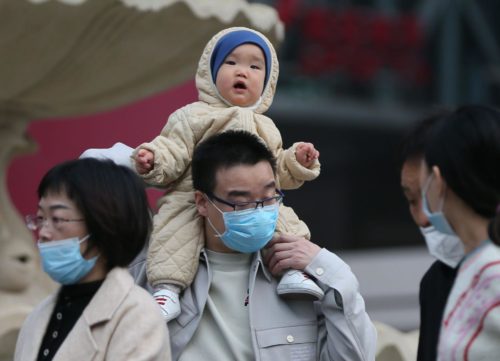China hints at ending birth limits in northeastern region — but most people hate the idea
China’s northeast is suffering from declining birth rates and the migration of its young people to other parts of China. Can removing China’s current two-child policy help?

Alarmed by an impending COVID-19 baby bust, Chinese health authorities signaled broadly on Thursday that cities in the country’s northeastern region might try to take the lead in encouraging Chinese couples to have children by removing all existing birth restrictions on families — although the one-child policy is no longer in force, most Chinese couples are only permitted to have two children.
The suggestion, however, has been met with a groundswell of skepticism and pushback on Chinese social media, where users argued that the decreasing birth rate in China was a multifaceted problem that required a lot more than just abolishing population controls.
In a brief statement (in Chinese) released on February 18, the Chinese National Health Commission said that the idea of letting couples in northeastern China have as many children as they want was “worth exploring.” The statement was a response to a proposal by a delegate of the Chinese People’s Political Consultative Conference, the country’s top political advisory body, whose name has not been revealed.
In the document, the commission said that the shrinking and aging population in northeastern China was a result of many economic and social transformations of the last decade — namely, the closures of many once-booming steel plants and coal mines, which had put millions out of work and forced young locals to migrate to megacities like Beijing and Shanghai in search of job opportunities.
Although several local governments in northeastern China have relaxed family planning policies in an effort to boost fertility rates — for example, in 2016, Heilongjiang Province introduced a policy that allowed qualified couples to have a third child — the commission noted that financial concerns and the trend of women wanting to establish their careers before embarking on motherhood have “drastically reduced the effectiveness of the policies.”
While the statement didn’t reveal any concrete plans, the commission encouraged provinces in northeastern China to “conduct some explorations” based on their realities and “consult experts” to assess how “fully removing family planning restrictions” would affect their economic growth, social stability, and local resources.
Faced with plummeting birth rates and an aging trend in its population, China relaxed its decades-long, controversial “one-child policy” in 2016, allowing all couples to have two children instead of one. In the following years, the Chinese government has experimented with a wide range of measures aimed at engineering a baby boom, including incentives and subsidies for parents, and an aggressive propaganda campaign.
These efforts don’t appear to be working. China’s fertility rate has been in steady decline: In 2019, it dipped to an all-time low, down 2.15% from the year before. And despite some predictions that the COVID-19 pandemic might lead to a boom of quarantine babies, preliminary data released by some Chinese provinces this year suggested that the opposite was far more likely.
The demographic crisis is particularly severe in northeastern China, where the number of newborns were among the lowest in the world. To make things worse, the region, which is often referred to as China’s Rust Belt and was a mighty industrial heartland prior to the 1990s, has been struggling to stop a population exodus as its young residents leave to seek better prospects elsewhere.
Given that there’s been talk in Liaoning about dropping birth limits altogether, the latest signal sent by Chinese health authorities shouldn’t come as a total surprise. But despite knowing that such abolition will be inevitable down the road, social media users still reacted strongly to the news, sending a clear message to policymakers that they consider parenthood a personal choice rather than a social responsibility. “Children aren’t cheap. We northeasterners are too broke for that,” a Weibo user wrote (in Chinese).






